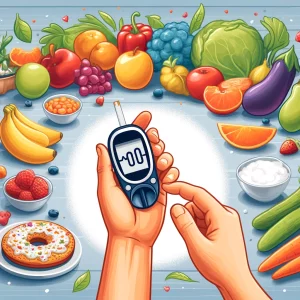In a recent video that has sparked considerable attention, Dr. Ekberg, a holistic doctor and former Olympic athlete, sheds light on a devastating disease that remains largely under the radar yet claims more lives than cancer. The video, titled 3X Deadlier Than Cancer & Most People Don’t Know They Have It, delves into the grim realities of insulin resistance, its widespread impact, and the urgent need for public awareness.
📉 The Hidden Epidemic: Insulin Resistance
Insulin resistance is a condition where the body’s cells become less responsive to insulin, a hormone critical for regulating blood sugar levels. Despite its severe consequences, it often goes unnoticed because its symptoms can be subtle and are commonly attributed to other health issues.
Dr. Ekberg begins the video by explaining: “This disease claims many times more lives than cancer, and most people who have it don’t even know it.” He stresses that understanding insulin resistance is crucial for mitigating its devastating impact on public health.
💔 The Devastating Health Impacts
The video outlines numerous health problems linked to insulin resistance, painting a stark picture of its widespread impact:
- Fatty Liver: Insulin resistance causes the liver to store excess fat, leading to fatty liver disease.
- Chronic Inflammation: Persistent inflammation in the body is a common consequence, exacerbating various health issues.
- High Blood Pressure and Blood Sugar: Elevated blood pressure and blood sugar levels are direct results of insulin resistance.
- Cholesterol Imbalance: The condition lowers HDL (good cholesterol) and increases LDL (bad cholesterol), raising the risk of cardiovascular diseases.
- Increased Triglycerides and Body Fat: Higher levels of triglycerides (a type of fat in the blood) and overall body fat contribute to obesity and related health problems.
- Reduced Immune Function and Autophagy: Insulin resistance hampers the body’s ability to defend itself and disrupts autophagy, a process vital for cellular cleanup and regeneration.
These effects collectively lead to severe health conditions such as cardiovascular disease, stroke, dementia, kidney failure, blindness, amputations, and even cancer.
📊 Staggering Statistics
Dr. Ekberg emphasizes the prevalence of insulin resistance with alarming statistics:
- Global Diabetes Epidemic: Approximately 463 million people worldwide suffer from type 2 diabetes, a number expected to double in the next few decades.
- Pre-diabetes in the US: Around 114 million Americans are pre-diabetic, indicating a significant portion of the population is at high risk of developing full-blown diabetes.
- Obesity and Overweight Rates: Over 70% of the US population is overweight, with more than a third classified as obese. Globally, around a third of the population is overweight.
These numbers highlight the urgent need for increased awareness and preventive measures to combat this silent epidemic.
🔬 Misunderstood Mechanism
A major issue with insulin resistance is that it is often misunderstood. The video explains that insulin resistance is not an arbitrary condition but a protective mechanism employed by the body. Dr. Ekberg likens it to resisting persistent sales calls: “When the cell starts to resist insulin, it’s trying to protect itself from the excessive intake of nutrients.”
This misunderstanding leads to improper treatment strategies that focus on managing symptoms rather than addressing the root cause. As a result, patients are often prescribed medications that force the cells to accept more insulin, which can further harm their health.
🍽️ Diet and Insulin Response
Contrary to popular belief, fat is not the primary culprit behind weight gain and obesity. Instead, the video points to sugar and starch as the main drivers. When consumed, these carbohydrates are broken down into glucose, raising blood sugar levels and triggering insulin production.
Insulin Response to Different Foods:
- Sugar and Starch: Have the highest insulin response, leading to increased fat storage and hunger.
- Protein: Produces about half the insulin response compared to carbohydrates.
- Fat: Causes virtually no insulin response, making it a more stable source of energy.
Dr. Ekberg explains, “Blaming fat for weight gain is like blaming the fireman for the fire. The real culprit is sugar and starch, which drive up blood sugar and insulin levels, leading to fat storage.”
🏥 Healthcare System’s Failure
The US healthcare system, despite spending over $4 trillion annually, has failed to effectively combat insulin resistance. This expenditure averages out to more than $12,000 per person, yet the rates of diabetes, heart disease, and other insulin resistance-related conditions continue to rise.
Symptom Treatment vs. Root Cause: Dr. Ekberg criticizes the healthcare system for focusing on symptom treatment rather than addressing the root cause of diseases. He states, “The treatment is for symptoms only, not the root cause. They don’t understand the root cause; they’re not interested in the root cause. They’re interested in treating symptoms.”
This approach results in a cycle where patients are managed for their symptoms without ever truly getting better, contributing to the ongoing rise in chronic diseases.
🦠 Insulin Resistance and COVID-19
The video also explores the link between insulin resistance and COVID-19 outcomes. Dr. Ekberg highlights that individuals with insulin resistance are at a significantly higher risk of severe illness and death from COVID-19. This is because insulin resistance weakens the immune system, making it harder for the body to fight off infections.
High-Risk Groups: He notes that the death rates for high-risk groups can be up to a hundred times higher than for low-risk groups. “Virtually all the risk factors identified outside of specifically age have to do with insulin resistance,” Dr. Ekberg explains.
🍏 Prevention and Reversal
Preventing and reversing insulin resistance is achievable through dietary and lifestyle changes. Dr. Ekberg provides practical advice for those looking to improve their health:
Preventive Measures:
- Eat Real Food: Focus on single-ingredient foods that are as close to their natural state as possible.
- Avoid Processed Foods: Steer clear of packaged foods with additives, preservatives, and high sugar content.
- Balance Macronutrients: Include a mix of protein, healthy fats, and low-carb vegetables in your diet.
Reversal Strategies:
- Low-Carb, Keto Diet: Reduce carbohydrate intake significantly to lower blood sugar and insulin levels.
- Intermittent Fasting: Limit the number of meals per day to give the body time to lower insulin levels and burn stored fat.
Dr. Ekberg emphasizes: “It’s not about counting calories; it’s about choosing foods that don’t spike your insulin levels.”
📈 The Path Forward
The video concludes with a call to action, urging viewers to take control of their health by understanding and addressing insulin resistance. Dr. Ekberg’s insights highlight the importance of education and awareness in combating this hidden epidemic.
Key Takeaways:
- Insulin resistance is a leading cause of numerous severe health conditions, yet it remains largely unrecognized.
- Understanding the root causes and mechanisms of insulin resistance is crucial for effective prevention and treatment.
- Dietary and lifestyle changes, such as a low-carb diet and intermittent fasting, can significantly improve insulin sensitivity and overall health.
Dr. Ekberg’s final message: “Prevention is easy. It’s about insulin, not calories. Choose real food, avoid processed food, and take proactive steps to maintain your health.”






